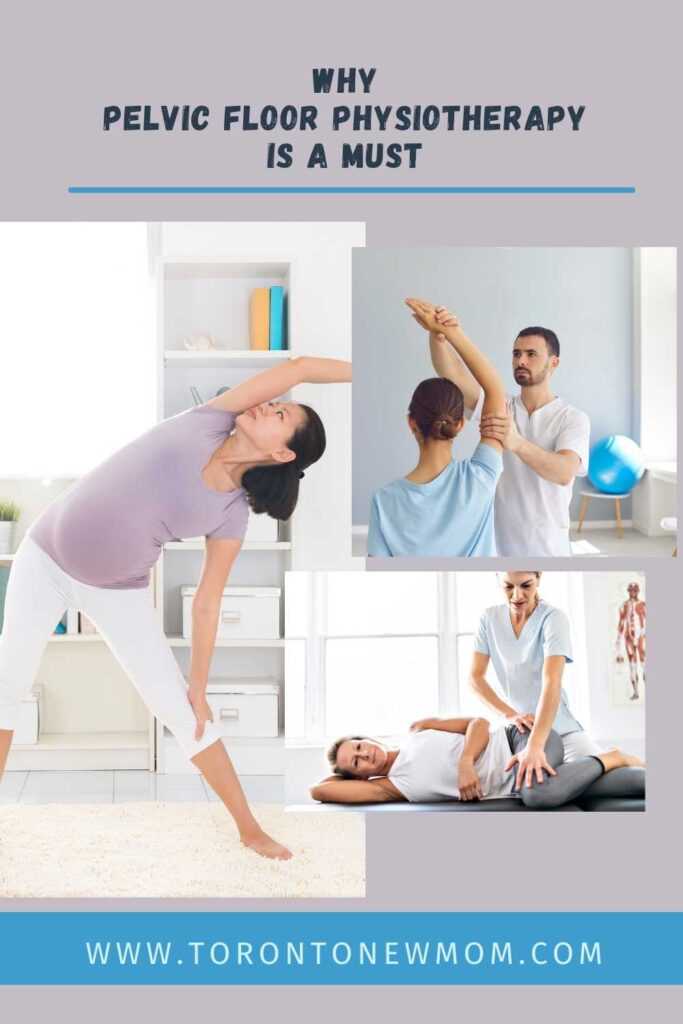
Why Pelvic Floor Physiotherapy is a MUST
After nine long months, it’s time to say goodbye to swollen ankles and uncontrollable gas and hello to sleepless nights, dirty nappies, and breastfeeding on demand. You’ve watched and felt your body change throughout your pregnancy and you’re eager to fit into your skinny jeans again. But have you considered how pelvic floor physiotherapy can help you recover post-partum?

During pregnancy, the body goes through a lot of changes and the pelvic floor muscles are susceptible to weakness from overstretching. This is where Kegels and pelvic floor strengthening come in! These exercises are important for optimizing delivery and increasing the likelihood of vaginal birth, reducing the risk of trauma or tearing, and helping prevent incontinence and other postpartum conditions.
But what even are Kegels? You may have heard of them before – whether it was from your mother, a Cosmo magazine or a friend who just had a baby. Women have shared stories with one another about how this ‘life-changing’ exercise has helped restore balance to their lady bits. However, most of us are left wondering – what on Earth is a Kegel and why do I need to do them?
In the simplest explanation, Kegels are an exercise for your pelvic floor muscles – and yes, that’s right, I mean an exercise for your vagina! In fact, Kegels are the bread and butter of pelvic floor physiotherapy and are important when treating the following types of pelvic floor dysfunction that occur post-pregnancy.
Why Pelvic Floor Physiotherapy is a MUST Post-Pregnancy
1. Stress Incontinence
One of the key roles of our pelvic floor muscles is to keep us continent- in other words, be able to control when we pee and poo. That’s right, I’m talking about those moments when you cough, laugh, sneeze, or exercise and feel a little dribble. Although these moments are common, especially in women who have had children, that doesn’t mean that they are normal. Your body is telling you have a pelvic floor dysfunction! In addition to pelvic floor strengthening, education on vulva care, proper positioning for toileting, and breathing techniques can all help regain control of your bowel and bladder.

2. Pelvic Organ Prolapse
Think of your pelvic floor muscles as a hammock that supports the bladder, uterus, and rectum. Weakness from pregnancy, childbirth and other factors can result in these organs falling out of place, even though the opening of the vagina. Pelvic floor physiotherapy can help improve symptoms of pelvic pressure, decrease the degree of prolapse, reduce other comorbidities including urinary and fecal incontinence.
3. Mummy Tummy or Diastasis Recti
Outside of weakness, pregnancy can increase the risk of other pelvic floor dysfunctions including Mummy Tummy or Diastasis Recti, which is the splitting or separation of the abdominal muscles. Often women will report seeing a dome shape appear on their stomach when coughing or doing crunches. Pelvic floor physiotherapy can help heal the separation by providing you with correct strengthening and stability exercises. Remember, some exercises can actually make the separation worse!
4. C-section Recovery
For all of my C-section mamas out there, pelvic floor physiotherapy can benefit you as well! In addition to strengthening the pelvic floor, it’s important to ensure proper scar healing. If too much scar tissue develops and the scar gets stuck, women can develop postpartum perineal pain and painful intercourse- not fun.

Whether you’re dribbling in places other than the basketball court or trying to become active again, pelvic floor physiotherapy can help. Remember, it’s not taboo to talk about these things!

Alyssa Brunt is a Pelvic Floor Physiotherapist at Darou Wellness on Richmond Street West. She has helped many women get back to feeling their best during and after pregnancy and is eager to help you too! Don’t hesitate to contact her at [email protected] and visit darouwellness.com or call (416) 214 9251 to book an appointment.
DISCLAIMER: THIS BLOG POST DOES NOT PROVIDE MEDICAL ADVICE
The information, text and images and other material contained on this page are for informational purposes only.

Related Post:
How to care for yourself while caring for a newborn?
Click here to learn easy self-care strategies to prevent and ease postpartum body aches and pains
- Winter Mom & Baby Programs - January 1, 2024
- Best Sleep Tips for Babies for the Holiday Season - November 7, 2023
- Top 5 Christmas Activity Alternatives for Muslim Children - November 7, 2023




Facebook Comments